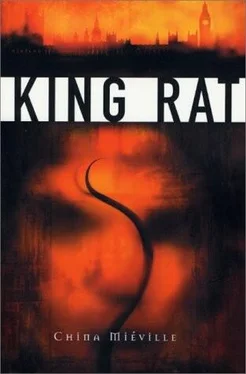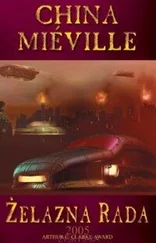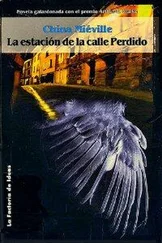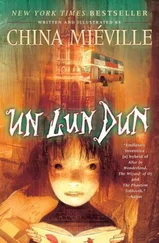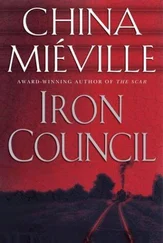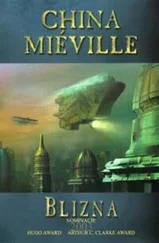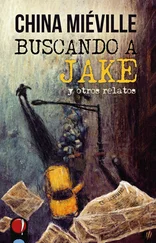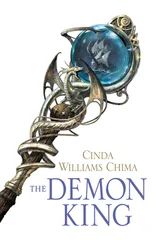Saul had risen and meandered around the room. He listened to the sound of dripping and distant howls.
King Rat had pinned a grubby piece of paper to the throne.
back soon, it said. stay put.
Alone, Saul felt unreal.
It was difficult to believe that he existed independently of King Rat, that King Rat was not a figment of his imagination, or Saul of his. Saul felt the stirrings of panic.
Alone, he was suddenly sick of King Rat’s evasion. What was the Ratcatcher? he wanted to know. King Rat would not say. Their run across the city had been largely silent. With King Rat by his side, Saul had acquiesced, was complicit in the cover-up; he had been busy listening to the rat in him wake up.
But alone, he realized that it had been a long time since he had thought of his father’s death. That he had been remiss in his mourning. His father’s death was the fulcrum. Understand that and he would know what wanted to kill him, he would know why the rats would not obey their king.
With King Rat by his side, Saul had seen a new city. The map of London had been ripped up and redrawn according to King Rat’s criteria. Alone, Saul was suddenly afraid that the city no longer existed.
Stay put? he thought. Fuck that.
Saul climbed out of the room and into the sewer.
Wind swept through the tunnels. Saul stood perfectly still and listened. He could not hear King Rat anywhere. He replaced the door to the hidden exit and moved gingerly away.
As he left the side tunnel which concealed the ways in and out of the throne-room, the strong smell of King Rat’s piss dissipated. Three rats hovered outside the tunnel, moving nervously, regarding him. He was unafraid but uncertain. He stopped and watched.
One of the three scampered forward a little and shook its head in a shockingly human motion. Saul took off through the sewers, trembling with trepidation. Alone, the sewer was a different world from the one that King Rat had shown him, but Saul was not afraid. He walked through an olfactory patchwork, and the smells of piss told him stories. The rat who pissed here was aggressive and quick to anger; the one who pissed here was a follower; the one here ate too much, and his favourite food was chicken.
Saul could feel the city above him. He felt lines and directions pull at him. He followed the geomantic tugging.
From behind him, Saul heard a pattering. He turned, and in the grey non-light he saw three rats following him. He stopped still and watched them. They halted six feet from him and shifted, without taking their eyes from him. As he watched two more rats jumped from a pipe that jutted into the tunnel, and joined their fellows.
Saul backed up a little and the rats followed, keeping their distance. One of them squeaked loudly and the others joined in, a discordant cacophony which was taken up throughout the tunnels nearby. Small feet scampered from all directions towards him. The squealing reverberated around Saul’s head.
More rats began to froth around him, out of the side tunnels and the surrounding dark. They came in twos and threes and tens, and although he did not fear them the sheer number was overwhelming. There was no light to glint off the hundreds of eyes which ringed him; they remained only little points of blackness in the general gloom, foci in the simmering mass of bodies which had filled the tunnel around him.
The squealing continued. It filled his head.
Suddenly, through his trepidation Saul felt a burst of excitement. He was confused by the sensation, it felt alien and out of place. And he realized that it was not his excitement at all, but that of the rats, that he understood their shrill communication, that he could feel what they felt.
He was awash with vicarious emotions.
Saul trembled and turned. There was nothing to distinguish what was before him from what was behind, everywhere was filled with the tiny eyes and bodies of the rats. The rats voices were tremulous, cosseting, pleading.
Saul fled the pressure of the sound, flooded by panic. He turned and leapt over the mass of bodies, which parted under him, little islands of clear sewer appearing under his feet as he landed, tails being whisked out of the way. The voices were suddenly plaintive. They followed him.
Saul ran through the tunnels and the rats scampered after him. Ahead of him he saw a wall-mounted ladder. He leapt up, caught it. The rats jumped, scratching at the bottom rail. Saul felt a surge of relief as he looked down into their inscrutable faces.
He climbed and forced open the metal cover, peeping out through the crack. The exit was fringed with high grass. Saul climbed out of the depths and emerged in a hollow between shadowy bushes. He was in a deserted park. Above the distant hum of traffic there were closer sounds of birds. Saul saw water before him, a twisted lake with islands.
Trees framed his field of vision. He saw a shape over the arboreal boundary: a huge gilded dome surmounted with a shaving of crescent moon. London’s central mosque, burnished by the streetlamps. To the south he saw the thin stiletto of Telecom Tower. He was in Regent’s Park.
Saul circled the boating lake and slipped silently through the hedgerows and trees and railings.
Saul clambered out into the dark city.
He walked south to Baker Street. Lights waved wildly over the faces of the buildings as cars swung by. Headlights pinned him in their glare as a battered van swept towards him and past. Saul’s heart raced for a long time after it had gone.
He turned onto Marylebone Road.
People bore down on him from all directions. It took him a moment to realize that they also moved away on past him, that they were simply walking along the street. Saul’s breath shook a little as he exhaled. He pushed his hands into his pockets and set off west.
The first man to pass him was dressed in a blazer and jeans, his rugby shirt tucked in, cuddling his distended belly. He glanced momentarily at Saul before his eyes flickered back ahead of him.
Look at me! Saul shouted in his head. I’m a rat! Can you tell? Can you smell? The man must have detected the stench which hung around Saul’s clothes, but was it so much worse than that which coloured the passing of a drunk? The man did not turn to investigate Saul, who stopped and stared after him. He turned and gazed at the next person approaching him, a young Asian woman in a short tight dress. She smoked as she passed him. She did not spare him a glance.
Saul laughed, giddy. He was passed from behind by a short black man, from in front by a group of singing teenagers, and then a very tall man with glasses, from behind by a man in a suit who walked, then jogged, then walked to his destination.
No one minded Saul.
Ahead of him the broken stream of night traffic rose, cut across Edgware Road. It returned briefly to earth then rebounded, flying again. This was the Westway, the vast raised road which swept above London. A thousand tons of impossibly suspended asphalt, it soared off over Paddington and Westbourne Grove, with the city spattered out forever on all sides. In the west, over Latimer Road, it twisted into an intricate mess of raised ramps and exits. It extricated itself from this tangle and continued, finally returning to earth outside Wormwood Scrubs prison.
Saul stared at the Westway. It passed Ladbroke Grove station, where Natasha lived. The rules of the city no longer concerned him. The prohibition against pedestrians on the Westway did not apply to rats.
He ducked between the sparse cars and scampered onto the central reservation, racing up the incline, skirting the barrier with vehicles buzzing past him on both sides.
Below him he heard faint shouts from the mustard coloured estates. Dirty winking lights swept away from him. The drivers could not see him. He was a dark figure, utterly inured to the cold, his back bent, his arms grasping the barriers, pulling himself along. He moved like a cartoon villain on speed, a fast, exaggerated skulking.
Читать дальше
